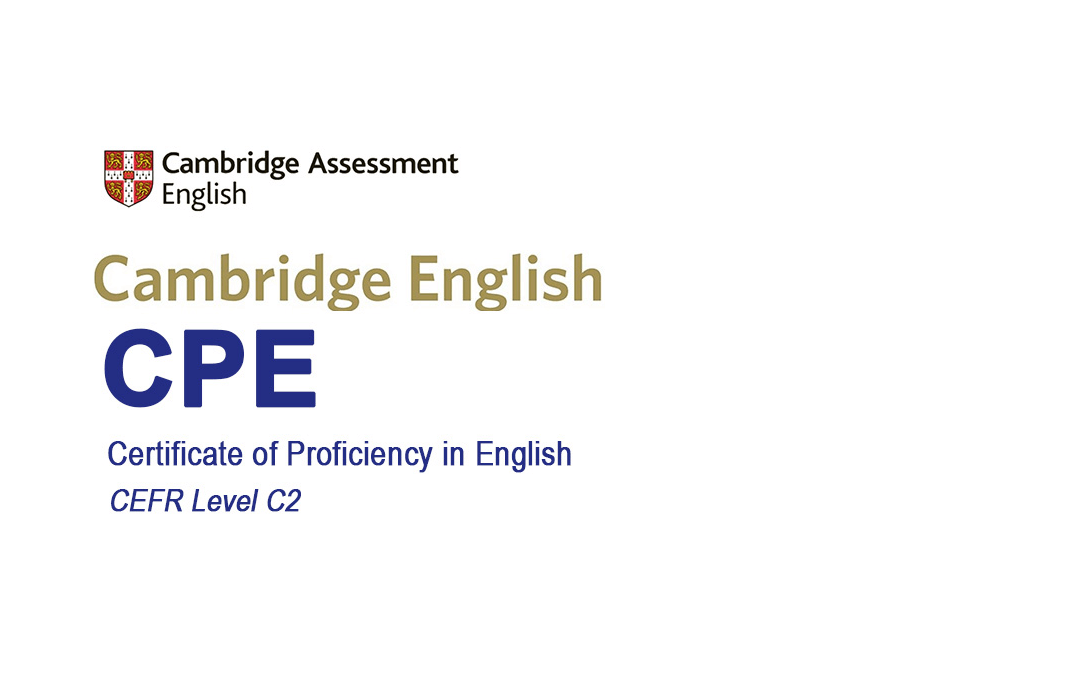The Cambridge Certificate of Proficiency in English (CPE) is one of the most prestigious English language qualifications worldwide. Designed for learners who have achieved an exceptionally high level of English, the CPE demonstrates mastery of the language and is recognized by universities, employers, and governments globally. If you’re aiming to prove your expertise in English, this exam could be the perfect choice. In this post, we’ll explore everything you need to know about the CPE.
What is the Cambridge Certificate of Proficiency in English (CPE)?
The CPE, officially called C2 Proficiency, is the highest-level qualification in the Cambridge English framework. Aligned with CEFR Level C2, the exam certifies that you can communicate fluently and effectively in English, similar to a highly educated native speaker. This certification is ideal for advanced learners who need to showcase their English skills for academic, professional, or personal purposes.
Why Choose the CPE?
1. Demonstrates Expert-Level English Skills
Achieving the CPE proves that you have mastered English to a near-native level. It shows your ability to handle complex tasks such as academic research, high-level business negotiations, and professional communication.
2. Globally Recognized
The CPE is widely accepted by prestigious institutions, including universities in English-speaking countries, multinational corporations, and government bodies. It can open doors to opportunities that require advanced English skills.
3. Lifelong Validity
Unlike some other English exams, the CPE does not expire. Once you earn the certificate, it remains valid for life, making it a long-term investment in your professional and academic credentials.
Who Should Take the CPE?
The CPE is ideal for individuals who:
- Use English professionally at a high level (e.g., lawyers, academics, or senior executives).
- Need proof of English proficiency for entry to postgraduate or PhD programs.
- Want a globally recognized qualification to enhance their resume.
- Are passionate about achieving the pinnacle of English language learning.
Exam Format
The CPE exam assesses your skills in four key areas of English:
1. Reading and Use of English (1 hour 30 minutes)
This section evaluates your ability to understand complex texts and use advanced grammar and vocabulary. Tasks include multiple-choice questions, word transformations, and reading comprehension.
2. Writing (1 hour 30 minutes)
You’ll be required to produce two pieces of writing, such as essays, reports, or reviews. This section tests your ability to express ideas clearly and persuasively in written English.
3. Listening (40 minutes)
The listening section involves understanding spoken English in various contexts, including conversations, lectures, and discussions. You’ll need to answer questions based on audio recordings.
4. Speaking (16 minutes)
Conducted face-to-face with an examiner, this section evaluates your spoken English through tasks such as discussions, presentations, and role-plays.
Tips to Prepare for the CPE
1. Build Advanced Vocabulary
Expand your vocabulary by reading a variety of complex texts, such as academic journals, literary works, and news articles. Pay attention to idiomatic expressions and advanced phrases.
2. Practice Writing Essays
Work on structuring your essays logically, using persuasive arguments and clear transitions. Focus on grammar accuracy and sophisticated language use.
3. Listen to Authentic English
Regularly listen to podcasts, lectures, and debates to familiarize yourself with different accents and advanced vocabulary. Practice summarizing what you hear.
4. Take Mock Exams
Simulate the exam environment with practice tests. Familiarize yourself with the format, time limits, and types of questions to build confidence and improve your time management.
5. Enroll in a Preparation Course
Consider enrolling in a course specifically designed for the CPE. Expert guidance can help you focus on areas that need improvement and provide personalized feedback.
How to Register for the CPE
To register for the CPE, follow these steps:
- Find a Test Center: Locate an authorized Cambridge English test center near you through the official Cambridge English website.
- Choose a Test Date: Test dates are available throughout the year, but spaces can fill up quickly, so book in advance.
- Pay the Fee: The exam fee varies by location but typically ranges from €150 to €200.
- Prepare for the Exam: Use official Cambridge preparation materials, such as practice books and online resources, to get ready.
CPE vs. Other English Proficiency Tests
Here’s how the CPE compares to other advanced English exams:
| Exam | Level | Purpose | Validity | Recognition |
|---|---|---|---|---|
| CPE (C2 Proficiency) | C2 | Academic, professional | Lifetime | Global |
| IELTS Academic | C1-C2 | University admission | 2 years | Global |
| TOEFL iBT | C1-C2 | Academic purposes | 2 years | Mainly North America |
| International English Test | C1-C2 | Professional | 1, 2 years or lifetime | Growing global recognition |
The CPE stands out for its lifetime validity and reputation as a mark of true mastery of English.
Conclusion
The Cambridge Certificate of Proficiency in English (CPE) is the ultimate qualification for those seeking to showcase their expert-level English skills. Whether you’re aiming to advance in academia, climb the corporate ladder, or simply demonstrate your mastery of the language, the CPE is a valuable credential that can help you achieve your goals.
Start your journey toward earning the CPE today by exploring preparation resources and registering for the exam. With dedication and effort, you can join the ranks of English language experts recognized worldwide.

